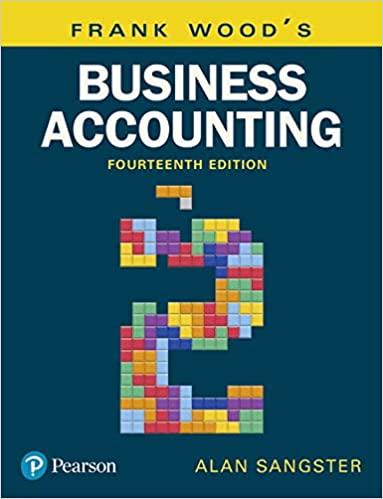Question
The Complexity of International Financial Reporting Standards (IFRS) and Its Impact on Global Business Operations: An In-Depth Analysis In the modern era of globalization, the
The Complexity of International Financial Reporting Standards (IFRS) and Its Impact on Global Business Operations: An In-Depth Analysis"
In the modern era of globalization, the adoption of International Financial Reporting Standards (IFRS) has become widespread among countries and multinational corporations. This extensive essay question delves into the intricate web of complexities surrounding IFRS, its adoption, and the profound implications it has on global business operations.
Historical Development: Begin by providing an historical overview of the development and evolution of IFRS. Trace its origins, from the initial efforts of standardization to the establishment of the International Accounting Standards Board (IASB). What were the driving forces behind the need for global accounting standards?
Adoption and Convergence: Analyze the process of IFRS adoption by countries around the world, particularly in comparison to Generally Accepted Accounting Principles (GAAP). Explore the challenges and benefits associated with countries converging their accounting standards with IFRS.
Challenges of Implementation: Examine the practical challenges faced by multinational corporations when implementing IFRS across multiple jurisdictions. Discuss issues such as language barriers, cultural differences, and variations in legal and business environments.
Financial Reporting Variations: Discuss the variations in financial reporting practices and requirements under IFRS, especially when compared to national GAAPs. How do these variations impact the comparability of financial statements across countries?
Impact on Financial Decision-Making: Investigate how the adoption of IFRS affects financial decision-making within multinational corporations. Analyze how investors, creditors, and other stakeholders perceive the transparency and reliability of financial information under IFRS.
Ethical Considerations: Explore the ethical considerations that arise when applying IFRS in different countries. Discuss issues related to corporate governance, transparency, and potential ethical dilemmas faced by accountants and auditors.
Regulatory Framework: Evaluate the regulatory framework surrounding IFRS implementation. How do regulatory bodies in different countries ensure compliance with IFRS, and what mechanisms are in place to address discrepancies or inconsistencies?
Financial Market Implications: Examine the impact of IFRS on international financial markets. How does the harmonization of accounting standards influence cross-border investments, mergers, and acquisitions? What are the implications for financial analysts and credit rating agencies?
Educational and Professional Development: Discuss the role of education and professional development in preparing accountants and auditors to navigate the complexities of IFRS. How can accounting education adapt to the changing global landscape of financial reporting?
Future Challenges and Developments: Provide insights into the future challenges and potential developments related to IFRS. How might the ongoing evolution of IFRS, coupled with technological advancements, shape the landscape of international financial reporting in the years to come?
Step by Step Solution
There are 3 Steps involved in it
Step: 1

Get Instant Access to Expert-Tailored Solutions
See step-by-step solutions with expert insights and AI powered tools for academic success
Step: 2

Step: 3

Ace Your Homework with AI
Get the answers you need in no time with our AI-driven, step-by-step assistance
Get Started


